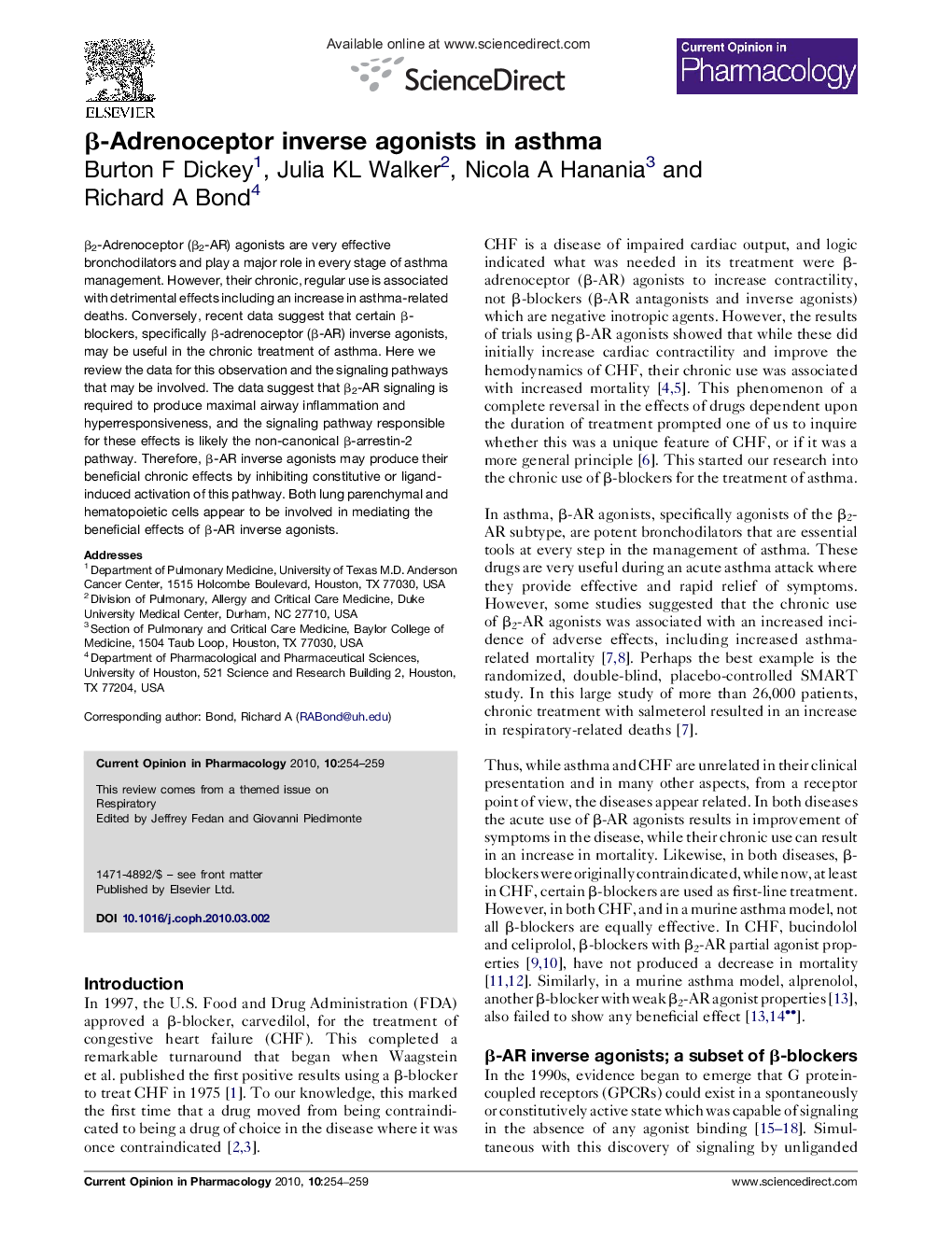| Article ID | Journal | Published Year | Pages | File Type |
|---|---|---|---|---|
| 2530191 | Current Opinion in Pharmacology | 2010 | 6 Pages |
β2-Adrenoceptor (β2-AR) agonists are very effective bronchodilators and play a major role in every stage of asthma management. However, their chronic, regular use is associated with detrimental effects including an increase in asthma-related deaths. Conversely, recent data suggest that certain β-blockers, specifically β-adrenoceptor (β-AR) inverse agonists, may be useful in the chronic treatment of asthma. Here we review the data for this observation and the signaling pathways that may be involved. The data suggest that β2-AR signaling is required to produce maximal airway inflammation and hyperresponsiveness, and the signaling pathway responsible for these effects is likely the non-canonical β-arrestin-2 pathway. Therefore, β-AR inverse agonists may produce their beneficial chronic effects by inhibiting constitutive or ligand-induced activation of this pathway. Both lung parenchymal and hematopoietic cells appear to be involved in mediating the beneficial effects of β-AR inverse agonists.
